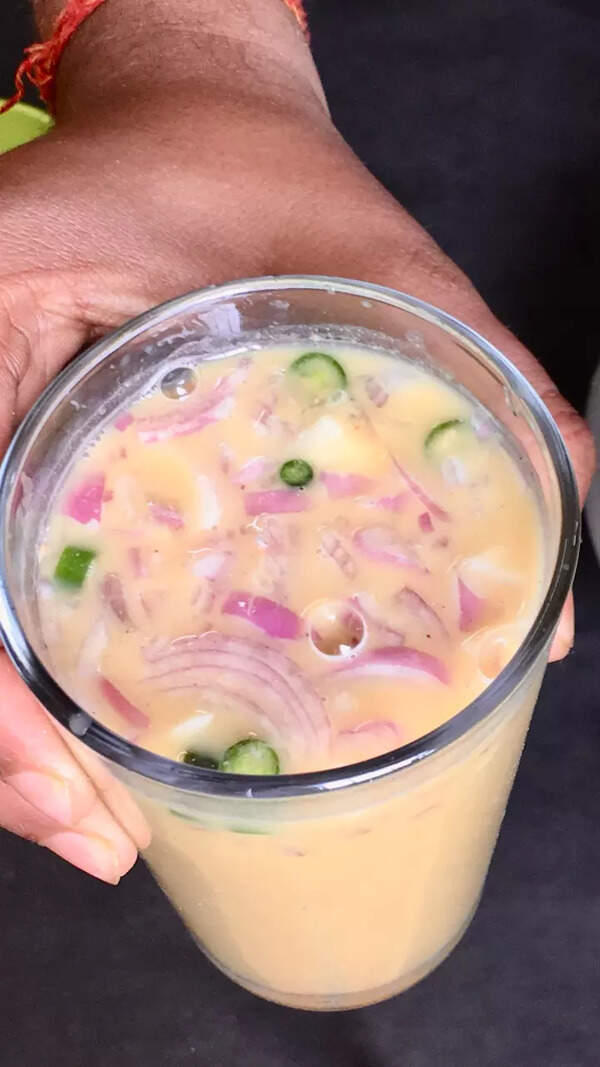- News
- lifestyle
- health-fitness
- fitness
- Are sugar alternatives truly better?
Trending
Are sugar alternatives truly better?
Driven by health concerns, many are turning to sugar alternatives like monk fruit and stevia, though experts advise moderation. While these substitutes can aid weight loss and manage blood sugar, overuse may trigger cravings and digestive issues. We spoke to experts who unpacked the pros and cons
Sugar is increasingly seen as a threat to health but giving it up isn’t easy. This has driven the demand for various sugar substitutes widely believed to be healthy.
Deepika Sasmal (28) from Mumbai, a dessert lover, has recently started using monk fruit. She says “I relish my desserts guilt-free now... I feel that it is the closest alternative to sugar. Switching to monk fruit has made me feel lighter... I can also see an improvement in my skin. The best part is it has zero calories.”
Similarly, Akshay Saraswat (34) from Bhopal too, has switched to sugar alternatives. “I first tried stevia but didn’t like its bitter aftertaste. Now I use a monk fruit and erythritol substitute that tastes like sugar with no aftertaste.”
Anushka (25) from Mumbai also uses monk fruit and stevia. “I haven’t noticed major changes, but it helps to know it’s better for my body than refined sugar.”
Poll
Do you believe that natural sweeteners can be a better choice?
Many such individuals turn to these alternatives for health reasons, but it’s important to understand if they truly deliver the benefits. We spoke to experts who unpacked the pros and cons.
Diabetics and those avoiding sugar can safely use alternatives like stevia, which don’t spike blood sugar levels. These options offer sweetness without affecting glucose, aiding diabetes management. However, it’s important to use these substitutes in moderation
Dr Uday Phadke, an endocrinologist and diabetologist
REFINED SUGAR VS COMMON ALTERNATIVES

Representative image/iStock
Source: Sugarcane
GI score: 65
Kcal: 4 per gram
Stevia
Source: Stevia plant
GI score: 0
Kcal: 0
Monk fruit sweetener
Source: Monk fruit
GI score: 0
Kcal: 0
Agave syrup
Source: Agave plant
GI score: 30 (approx)
Kcal: 3.2 per gram
Erythritol
Source: Sugar alcohol derived from fermenting glucose
GI score: 1
Kcal: 0.24 per gram
Coconut sugar
Source: Sap of the coconut palm
GI score: 35
Kcal: 3.8 per gram
Date sugar/syrup
Source: Dates
GI score: 45 - 55
Kcal: 3 - 3.5 per gram
Palm sugar
Source: Sap of palm trees
GI score: 35 - 50
Kcal: 3.9 per gram
Raisins
GI score: 64
Kcal: 2.5-3 per gram
Maple syrup
Source: Sap of maple trees
GI score: 54
Kcal: 2.6 - 2.8 per gram
Apple/Unsweetened Apple sauce
GI score: 36 / 35–40
Kcal: 0.52 / 0.41 per gram
Jaggery
Source: Sugarcane
GI score: 84
Kcal: 3.8 - 4 per gram
Ripe bananas
GI score: 51 - 65
Kcal: 105 kcal per medium banana
(GI (Glycaemic Index) score measures how quickly a food raises blood sugar levels, with lower scores indicating a slower rise)
HEALTH IMPLICATIONS
Gauri Anand, a clinical dietitian, states,
“Sugar alternatives can support weight loss when paired with a balanced diet and portion control, though effectiveness varies by type and usage.”
May trigger sugar cravings
Dr Uday Phadke, an endocrinologist and diabetologist, warns,
“Overuse of sweeteners can increase sugar cravings and lead to more sugar intake.”
Can have a laxative effect
Dr Pratayksha Bhardwaj, a weight management expert, notes that while sugar-free products are generally safe, excessive intake may cause digestive issues. “Most come with a laxative warning and can worsen stomach problems if overused,” he says.
COMMON MISCONCEPTIONS
Additionally, Gauri Anand shares another common misconception about jaggery and honey being a safe alternative in terms of GI index. She says, “Jaggery and honey, though natural, still have high glycaemic indexes and can spike blood sugar.”
She also points out that agave syrup, coconut sugar, and maple syrup – though marketed as low-GI – still raise blood sugar and contain fructose, which may lead to metabolic issues. “Even zero-calorie sweeteners like aspartame and stevia raise concerns about potential long-term effects. While these may be better than refined sugar, moderation is key,” she says.
HEALTHY FOOD BRANDS GO SUGAR-FREE
Using sweeteners comes with challenges such as maintaining structure and moisture, as sugar aids in binding. Another challenge is making people understand the cost difference. Natural sweeteners are significantly pricier than refined sugar, but many consumers are unaware of this
Nita Purohit, chefpreneur and founder of a gourmet food kitchen
However, different dishes react differently to sugar alternatives, making it essential to adjust recipes. Shivani Sharma, chefpreneur and founder of a gluten-free kitchen, explains, “Sweeteners require recipe adjustments to maintain structure. In my gluten-free millet cakes, I use date paste and coconut sugar for moisture and sweetness. For light pastries, liquid sweeteners like maple syrup can alter the texture.”
The feedback on her sugar-free items has been positive. Sharma shares, “Clients have shared that they no longer experience the rapid spike and crash that comes with refined sugar.”
End of Article
Follow Us On Social Media
Visual Stories
Tired of too many ads?go ad free now









